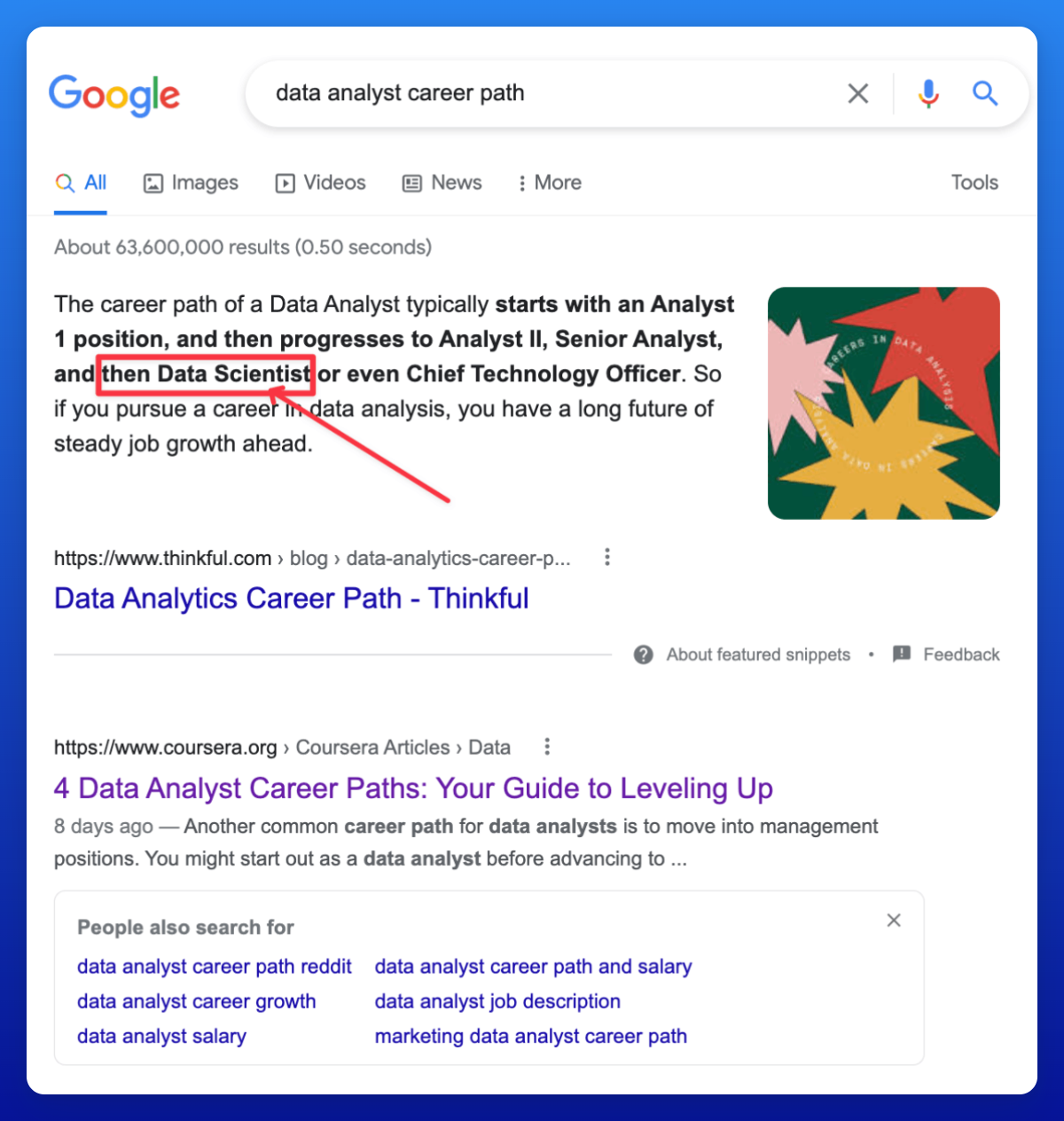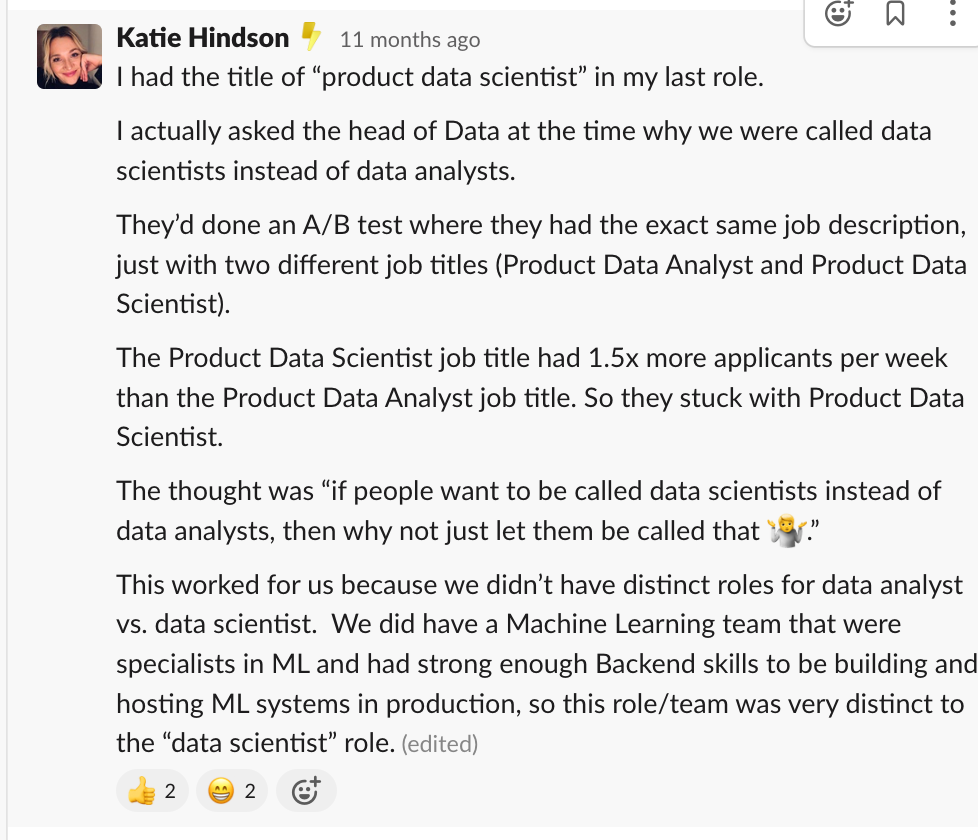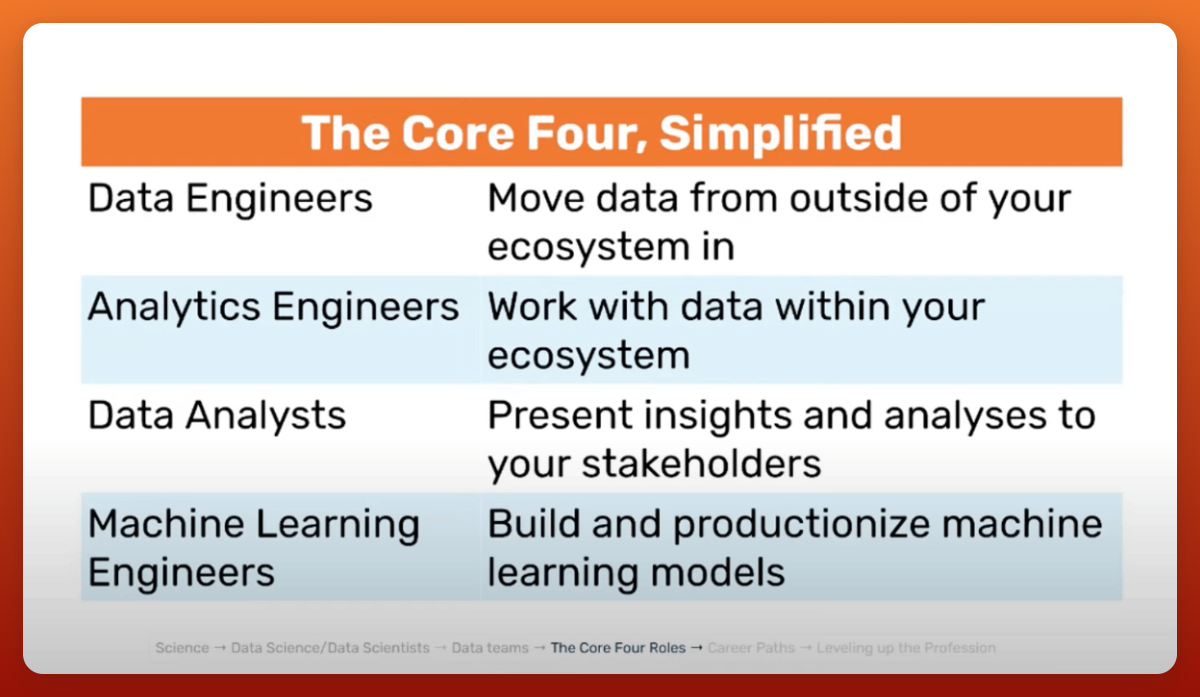The Misleading Data Analyst Job Title (and Career Ladder)
Investment analyst is an entry-level investment position. So is data analyst an entry-level data position, too?

I had a mildly interesting yet important observation recently.
Imagine you’re 22 years old, studying Finance, and fresh out of college. You heard investment (especially investment banking) is a really cool career. You applied and got an entry-level job at an investment bank. Your title is “investment analyst”, you spend time looking at deals and analyzing financial data.
Now imagine you and I meet.
“What do you do?” you asked.
“I am a data analyst”, I answered.
What would be the first impression that you have about my job? If you were like me a long time ago, you would go: “He works in data, probably doing data analysis, and he’s an entry-level person just like me”.
If we look at the investment career ladder, it goes like this: Investment Analyst → Senior Investment Analyst → Associate → Senior Associate → VP → Director etc.
While the same one for the data analyst career looks like this: Data Analyst → Senior Data Analyst → Lead → Staff → Principal.
You can see where I am going with this: The job title “investment analyst” and “data analyst” are semantically different. “Analyst” in Investment means entry-level (seniority), while in Data it means analysis (job scope).
Put it another way: An investment analyst is an entry-level investment person, whereas a data analyst is a person doing data analysis with seniority unspecified.
Why is there this difference? Well, why do investment people use ‘analyst’ as an entry-level title?
In investment, you start with a desk job doing deals analysis and diligence. As you rise through the ranks, you’re expected to go out to bring in high-net-worth clients to the firm. In this world, client relationships (and deal generation) are considered higher level than doing analysis. This is understandable because bringing in deals links directly to revenue.
This is obviously not the same for the data analyst career. The data analyst's primary output is insights and analyses that inform business decisions. As you rise through the ranks, you’re expected to produce higher-impact insights and analyses; but the nature of your job’s output doesn’t change!
Why does this matter?
Ok, so that is mildly interesting. But why is that important?
Because it can lead to a misconception: “Being a data analyst is a junior role”
For people already in data field, we understand this is not the case perfectly well.
But for newcomers to data, they don't know that. They might think data analysis is NOT a long-term career. So they will look into moving into other roles (data scientist, product, leadership) in order to move up.
This belief is dangerous for the data ecosystem.
And worse yet, I believe this is a very popular belief.
Why do I say so? I don’t have a statistically-tested analysis to prove this to you, but here are some anecdotes.
The first Google result for “data analyst career path” returns:
The career path of a Data Analyst typically starts with an Analyst 1 position, and then progresses to Analyst II, Senior Analyst, and then Data Scientist or even Chief Technology Officer (emphasis mine)

That article (top of Google search) implies that data scientist is the next level after data analyst. Analytics newcomers who research the space and see this knowledge would likely think to themselves “Ok so after being a data analyst, I will strive to become a data scientist”.
And that’s not the only link with the same implication about “data scientist > data analyst”.
Take another example. User Katie Hindson in the dbt Slack community shared a fascinating story below. Her previous data organization A/B tested the data job title. They saw a 50% increase in applicants per week by simply changing the job title from ‘Product Data Analyst’ to ‘Product Data Scientist’. The rest of the JDs stay the same.

I can go on, but you get the point.
To sum up, the investment industry uses the word ‘analyst’ to indicate entry-level for their job (investment analyst), this causes confusion with the ‘data analyst’ career and might make people think data analyst is a low-level job, hence slowly attriting people out of the field.
How do we address this?
Where do we go from here? What can we do as people in the data community?
I don’t have a final answer, but below are some ideas that I have:
First, just to put things in order, we should define and separate clearly different data roles. Emilie Schario in her talk “Down with Data Science” (Coalesce 2021) proposed to align the data job roles into the four cores: Data Engineers, Analytics Engineers, Data Analysts, and Machine Learning Engineers.

I think this is getting in the right direction. If you also notice there was no Data Scientist role, as Emilie also lobbies against this title, and it seems the Machine Learning Engineers partly cover that.
Second, we need to define and promote a clear career ladder and job titles for the data analysts. If we have something as standardized and widely accepted just like the investment folks, that will definitely help clear the doubts.
I think we can borrow the structure from the Software Engineering field: Junior → (Empty) Data Analyst → Senior → Lead → Staff → Principal. Or something of that variation.
Once that is finalized, the entire data community should go behind it, and make sure it is being taught and shown to people new to the data field.
I think those are the starting points. It took a long time for the industry to realize that “Not all people want to be people managers; you can rise up in your career without being one” (as seen in the Software industry). Similarly, I think once we implement this, it will take a while for people to recalibrate their mindset about the data analyst job, too.
For now, if you work in data and see yourself going through the same situation, let’s help fix this by sharing this post with your data (and non-data) colleagues!
That’s it for this week, I hope you enjoyed the above observation. What do you think? What did I get right and what did I miss? Please share your comments in this LinkedIn thread.
p/s: If you notice, I’m putting both “data analyst” and “career ladder” in the post title. I’m secretly hoping that this will overtake those outdated SEO content over time. 🤞
If you're interested in more non-obvious think pieces like this one, check out:
What's happening in the BI world?
Join 30k+ people to get insights from BI practitioners around the globe. In your inbox. Every week. Learn more
No spam, ever. We respect your email privacy. Unsubscribe anytime.

